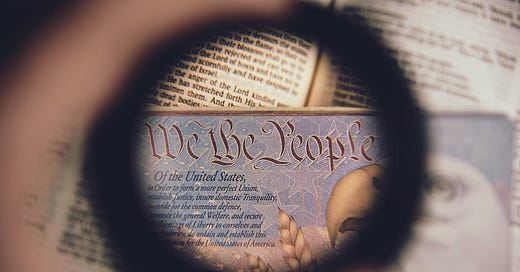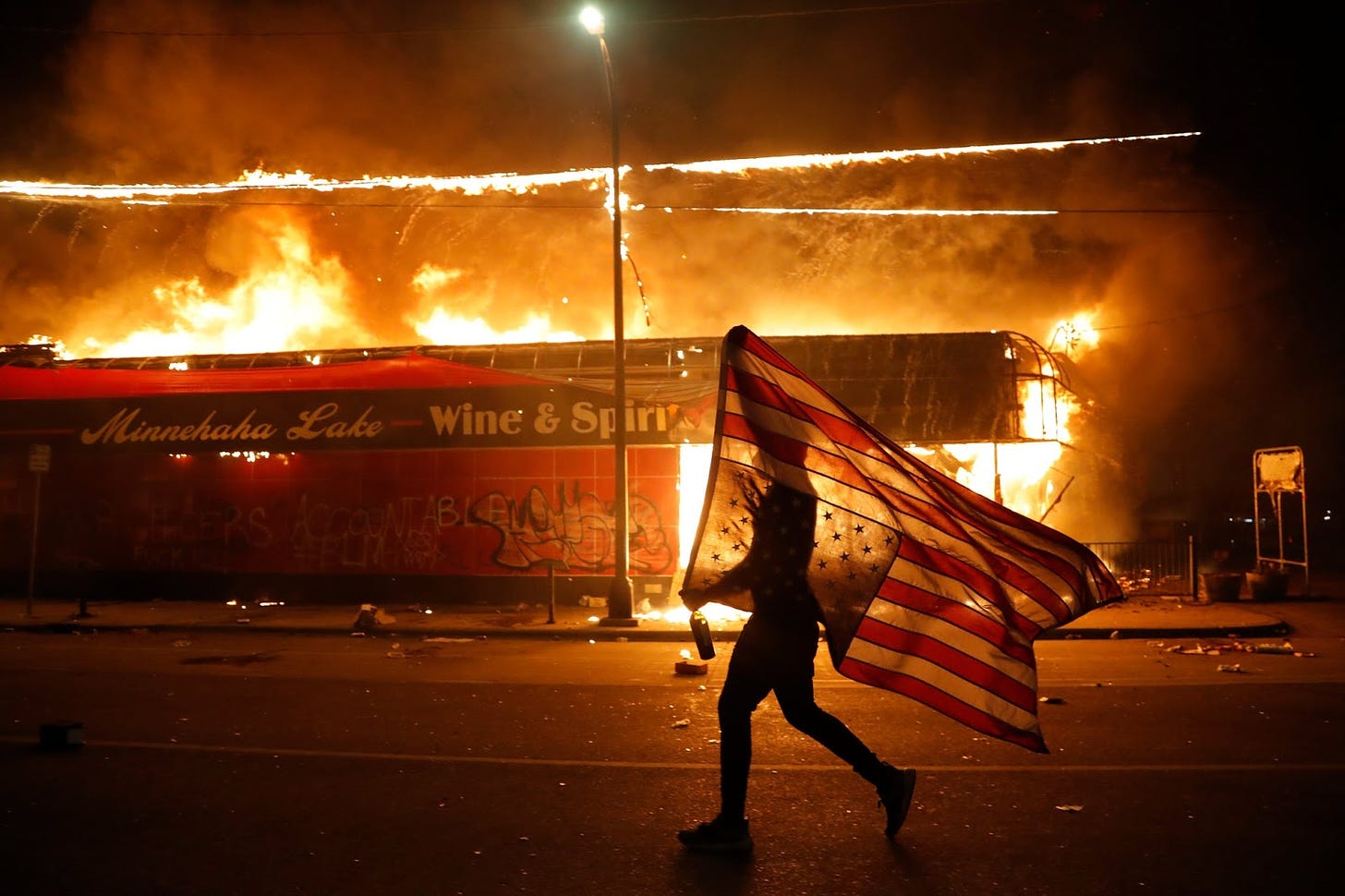I Want to be an Institutionalist, But Do the Institutions Want Us?
Why institutions matter and we're slowly eroding their place within our society. The next step has to be their revitalization.
I spent my childhood admiring the military and government institutions. I adored everything they stood for. My sister and I, along with neighborhood friends, waved American flags on our street after September 11th. But the world has changed since then. President Trump brought “patriotic populism” to the forefront in the wake of the “Tea Party” movement during the Obama administration.
President Trump’s distrust of the government revealed deep flaws within our institutions, only levied by the increasingly radical behavior of the Democratic party. Beyond this, the United States had at the time of his election been in two seemingly unending wars, faced an economic collapse, and had [and has] a highly non-inclusive media environment in the age of the internet and social media. The bottom line is Americans in both parties are angry, and only our institutions can save us.
The institutions have let the American people down. From the Treaty of Versailles to Abu Ghraib, the institutions have let the American people down, time and time again. The difference is that there was a more ingrained and inherent trust in the institutions of our government post-WWII, that is until the economic collapse of 2008. It’s not the case today. Both parties lack trust in each other and the government itself.
The Role of the President
President Biden, for his part, has done little to quell divisions in either party or among the American people more broadly. This is likely due to him merely being a puppet of the Democratic party. With few thoughts of his own and lacking support from hardline members of his party, his hands are largely tied. With his advanced age obvious to all, there is likely little appetite for an internal fight. He is not the great unifier he promised to be on the campaign trail; instead, he is the great capitulator to the extreme members of his party, whether his dementia-riddled state realizes it or not. While Biden remains asleep at the wheel, the country continues running in two different directions. On Inauguration Day, a mere 6-months ago, a CBS News poll found that “54% of Americans say the biggest threat to our way of life isn't economic collapse, natural disasters or foreign invasions — but our own fellow Americans.” Little has changed in the 6-months since he took office.
One can’t help but think of the words from the Declaration of Independence: “when in the course of human events, it becomes necessary for one people to dissolve the political bands which have connected them with another, and to assume among the powers of the earth, the separate and equal station to which the Laws of Nature and of Nature's God entitle them, a decent respect to the opinions of mankind requires that they should declare the causes which impel them to the separation.”
No one should argue that we are in the midst of a Civil War or separation, but we are as divided as at any point in American history. That could be due to the American people not having anyone to trust at the helm of power, especially those behind the scenes.
Americans, like most around the world, have always lacked trust in politicians. But, trust in non-political institutions held a respected place in our democracy, at least until recently. Some examples include the botching of the pandemic by the NIH and CDC, the FBI’s mistakes in the investigations into both Hillary Clinton and President Trump, soaring violent crime in many cities throughout the US… just to name a few.
Regaining Trust
So how does the government regain trust among its citizens? Government agencies and others have to return to their traditional apolitical roots. They have to regain their independence from politics and, thereby, the trust of the people. That insulates our political system from the whims of the mob and political ideologies. It seems unclear how they do that at this juncture when so many within the federal government lean toward a singular political ideology. Still, something must be done to restore confidence. First, the federal government must hire talented individuals from beyond the sanctum of the largest cities, especially those within DC.
Beyond that, there has to be action taken against “so-called” journalistic entities and social media outlets that operate largely without any regulation, either against libel or other legal action, when erroneous smear campaigns are presented on their platforms. If social media platforms want to ban users from giving their opinions, Section 230 should not apply. Moreover, media outlets like Fox News, MSNBC, CNN, and others should not be allowed to blatantly attack anyone without sufficient evidence. That evidence should be provided upon request. Media outlets should be the prevailers of truth, not beholden to their advertisers and their next buck.
While all of these recommendations are unlikely to occur, they should be fought for and receive bipartisan support in certain instances. The problem we face is much more minor with the politicians; they tend to follow the crowd. The institutions follow them, as they’re their bosses. We have to change the fourth estate of government, the media, and what has become of the media and social media. We could put simple regulations in place with the political will to do so, but it would require the will to do so.





